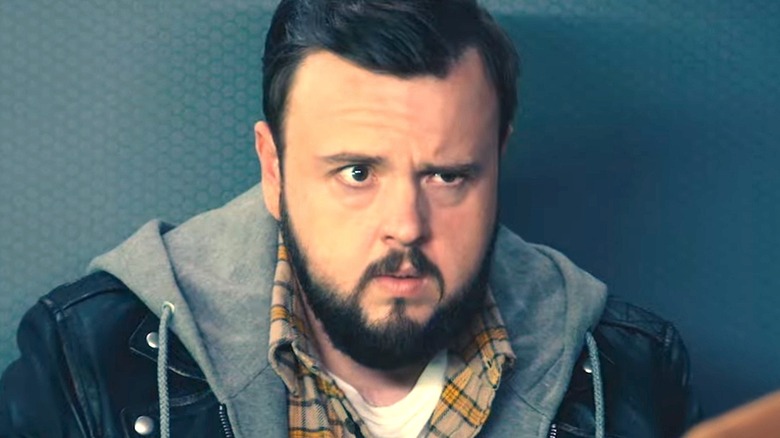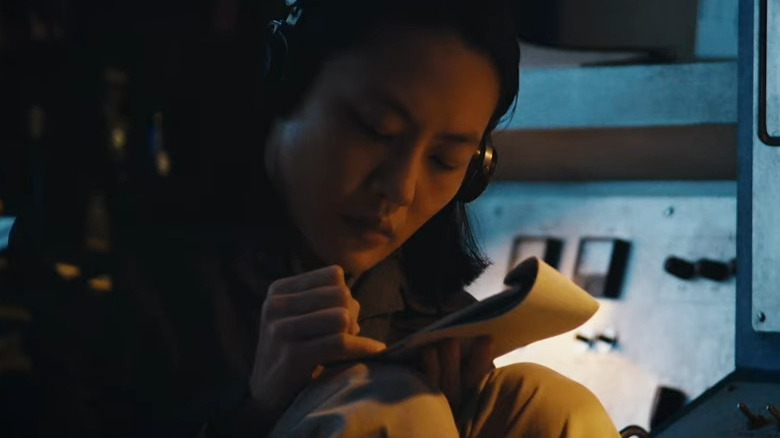What Is Netflix's 3 Body Problem Based On?
During Netflix's most recent Tudum — a streamed, massive media announcement event, think Nintendo Direct — viewers were treated to a slew of announcements, such as a peak at the upcoming mystery sequels "Enola Holmes 2" and "Glass Onion: A Knives Out Mystery," as well as the newest seasons of "The Witcher" and "Shadow and Bone," as well as "Lupin." New projects were announced as well, including "The School for Good and Evil" and "Slumberland." But all of this doesn't even begin to scratch the surface as to how informationally dense the two-hour Tudum was.
So, instead of broadening the lens, let's narrow our focus. Amongst the announcements for new productions, Tudum revealed an early look at the upcoming science fiction series "3 Body Problem," spearheaded by former "Game of Thrones" showrunners David Benioff and D. B. Weiss.
As Alexander Woo, one of the executive producers on the project, referred to the series, "3 Body Problem" depicts "a history of humanity from the point of first contact with an alien civilization all the way to the end of the universe." As far as summaries go, Woo's elevator pitch feels a bit spoiler-laden and, in a way, it is, but "Three Body Problem" isn't so much about the results as it is about the process.
To prove that, or to — at the very least — better understand it, let's take a look at the source material which Netflix's "3 Body Problem" is based upon.
Humanity dooms itself in Cixin Liu's book series
As heavily discussed during the Tudum segment, the Netflix series is based on the first book in the science fiction trilogy written by Cixin Liu (and translated into English by Ken Liu), titled "The Three-Body Problem." The story is both individualistic and global in that it shows how one person can change the course of history. However, unless the Netflix adaptation greatly alters the tale, there are no heroes here.
In brief, the novel's events are kicked into motion when Ye Wenjie, a young woman severely jaded by a life of betrayal and loss, willingly contacts an alien race after receiving proof that such an act would lead to the absolute obliteration of the human race. Liu's work embodies the old, African proverb that says the child who is not embraced by the village will burn it down to feel its warmth.
After that, things progressively get worse. In the two sequels, "The Dark Forest" and "Death's End" (a book which is just as sobering a tale as the title implies), humanity expands beyond the confines of the earth, but never far enough to truly escape the punishment due for their crimes. Liu's work foregoes subtlety and tackles modern issues such as tyrannical governments and ecoterrorism and how extreme conditions will inevitably harden — or destroy — the soul.
The books have won widespread acclaim, with the first earning the Hugo award for "Best Novel" in 2015. If the Netflix adaptation comes even close to capturing that sense of global tragedy, viewers will be in for a ride.

